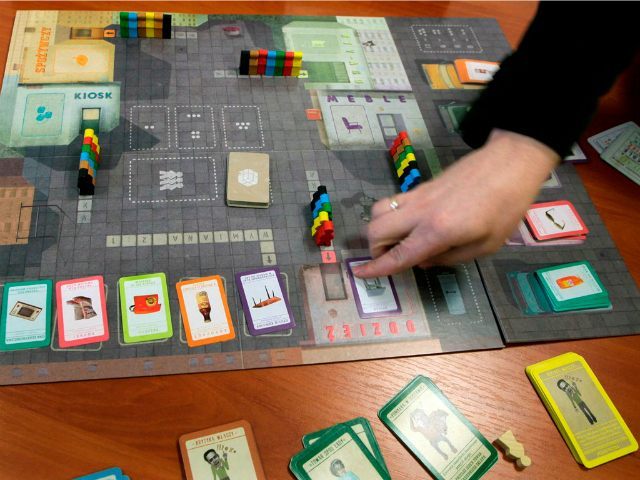Russia has forbidden the sale of Poland’s “Communist Monopoly” board game that allows players to transport themselves back to the USSR.
„Kolejka” zakazana w Rosji jako… antyradziecka Na początku było pięknie. W listopadzie zeszłego roku na rynek trafiła…
Posted by Instytut Pamięci Narodowej on Thursday, March 17, 2016
“Kolejka” means “Queue” in Polish. Unlike Monopoly, which portrays capitalism and free markets, Queue allows players to experience life in Poland under the Soviet Union.
Poland’s Institute of National Remembrance (IPN) said Russian officials demanded changes “to the historical background of the game.” If Poland did not make the changes, the officials would pull the game from the shelves. A Polish official said “the allegations against the game are absurd and arise from the Russian concept of historical policy.” He stated that Russia does not like it when anyone attempts to properly portray Soviet Russia.
“When Russia takes the Soviet Union’s history as its own, it leads to some Russians thinking that criticizing the Soviet Union as a totalitarian regime is the same as attacking contemporary Russia,” retorted IPN’s Education Department Head Andrzej Zawistowski.
From Quartz:
“Queue” was released in Poland in 2011, with translations into five languages. It aims to show a younger generation of Poles the exasperation of everyday life in communist-era Poland. Players have to buy all the products on their shopping lists in the five stores in the neighborhood–or on the black market. They have to wait for the products to be re-stocked, and in order to advance in the line, they can use cards such as “mother with child.” The game quickly became a hit, drawing long lines to get one, ironically.
Poland never officially joined the USSR, but became a satellite state after President Franklin D. Roosevelt and British Prime Minister Winston Churchill allowed USSR dictator Josef Stalin to keep the lands he received under the Molotov-Ribbentrop Pact.
On August 23, 1939, Soviet Foreign Minister Vyacheslav Molotov and German Foreign Minister Joachim von Ribbentrop agreed on a non-aggression treaty — the Molotov-Ribbentrop Pact — that included splitting Romania, Poland, Lithuania, Latvia, Estonia, and Finland. The German army invaded Poland on September 1, 1939, which started World War II. Stalin then invaded Poland on September 17 after the Soviet Union signed a ceasefire agreement with Japan. Between 1939 and 1941, over 200,000 Polish civilians died. The Russians slaughtered 21,892 Polish citizens in the Katyn massacres and 9,817 people after Germany violated the non-aggression agreement.
During occupation, Russia dismantled everything to do with Poland and erected everything Russian. Schools implemented readings on Lenin and Marx. The government forced the people to use the ruble and accept Soviet Union citizenship.
After World War II, Stalin installed a communist government in Poland, arrested politicians of the opposition, and put them in gulags. Rigged elections led to a permanent communist government by 1949. During the first election run by this government, widely considered illegitimate, voters chose to grant the Soviet Union greater control in the nation’s affairs. This puppet government agreed to the Soviet annexation of the eastern territory and allowed the Red Army on Polish lands.

COMMENTS
Please let us know if you're having issues with commenting.